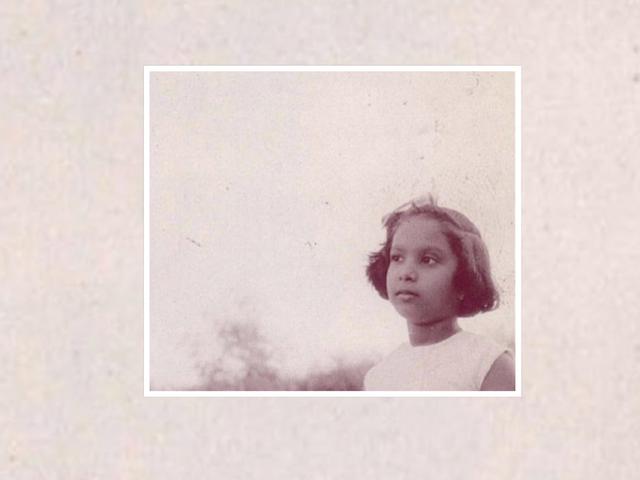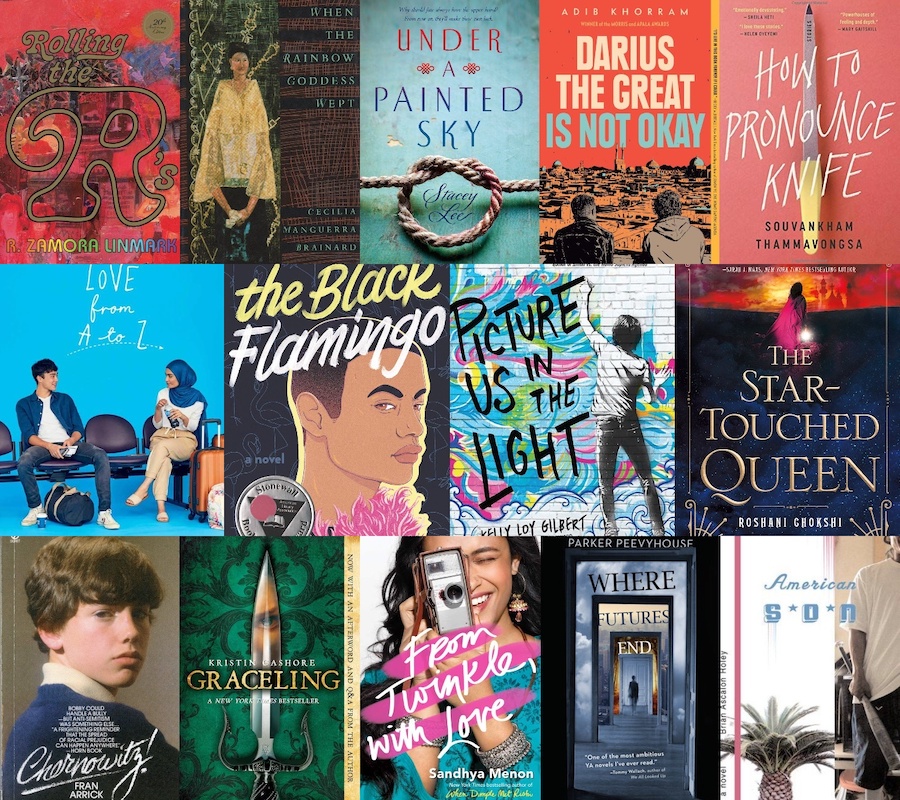June brings the poetry of the Sri Lankan long durée, South Korean domestic thrillers, number one Chinese restaurants, and new myths of old Morocco.
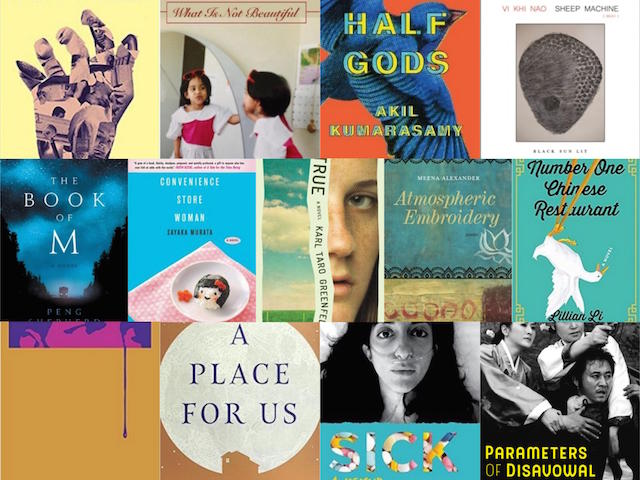
June 6, 2018

Swole by Jerika Marchan
Swole drowns us in poetic remembrance of Hurricane Katrina. However in the lines conveying the catastrophe, the hope and hopelessness, and the aftermath of the water that overflowed into people’s lives, Jerika Marchan convinces us that this event is not in the past. Hurricane Katrina is still happening and Marchan urges us to dive in, in her “songbook of catastrophes.” (Futurepoem Books, May 1)

Ivy vs Dogg by Brian Leung
Brian Leung delivers a punch with his satirical view on suburban politics. When Ivy Simmons runs for Mudlick’s annual Junior Mr. Mayor against popular boy, Jimmy “Dogg” Doggins, the Committee pushes Ivy’s pregnancy as a catalyst to appeal to its conservative constituency. Utilizing the Committee’s use of authority that is undermined by their ignorance of a changing culture, Leung uses his two young characters to teach the adults a powerful lesson. (C&R Press, May 15)
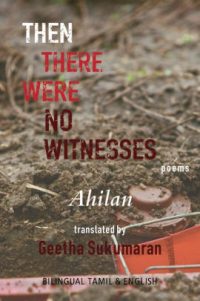
Then There Were No Witnesses by Packiyanathan Ahilan, trans. Geetha Sukumaran
Trained as a historian, the poems in Packiyanathan Ahilan’s latest published collection approach the violence in Northern and Eastern Sri Lanka via a longue durée, lending them weight and fusing the poetic with the polemic. (Mawenzi House/TSAR Publishers, April 30)

Poetics and Precarity by Myung Mi Kim & Cristanne Miller, editors
This edited volume brings together poetry and critical discourse, situating them as part and parcel of an anticapitalist, anti-imperialist aesthetic. At its core is an argument that language and art have the potential to radically address the precarity of our (post)modern lives. (State University of New York Press, May 1)

True by Karl Taro Greenfeld
Karl Taro Greenfeld’s novel about home and ambition follows the story of Trudy, known to all of her friends as “True.” Obsessed with soccer and wanting to eventually join the U.S. Women’s National Soccer Team, True must navigate a series of setbacks, in addition to coming to terms with her own place in the world. (Little A, June 1)
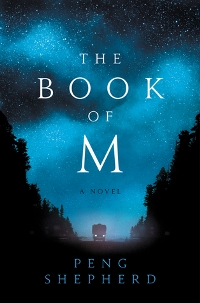
The Book of M by Peng Shepherd
Set during an apocalyptic epidemic in which people lose their shadows and their memories, Peng Shepherd’s debut novel is a suspenseful foray into science fiction that interrogates the value of memory and forgetting. (William Morrow, June 5)
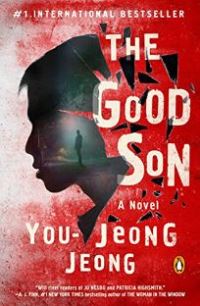
The Good Son by You-Jeong Jeong trans. Chi-Young Kim
You-Jeong Jeong’s new novel, her first to be published in English, is a thriller about a boy who discovers his mother dead in the kitchen. With the reliability of her narrator constantly questioned and interrogated, The Good Son is a thriller that asks if truth is separable from fiction. (Viking, June 5)
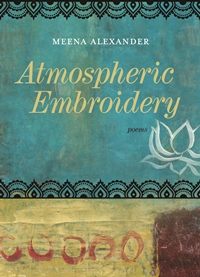
Atmospheric Embroidery by Meena Alexander
Crossing not one, but two national boundaries, Meena Alexander’s latest collection of poems evokes a lyric expression of body, memory, and place as they relate to the most precarious of lives. (Northwestern University Press, June 15)

Parameters of Disavowal by Jinsoo An
In a deep analysis of Manchurian action films, kisaeng and gangster films, and revenge horror films, Jinsoo An examines how filmmakers reworked and erased ideas of colonial power in South Korea that challenged the domination of colonial power in the early twentieth century while exploring the trauma caused by colonial violence and lingering emotional ties to colonial order. (University of California Press, June 15)
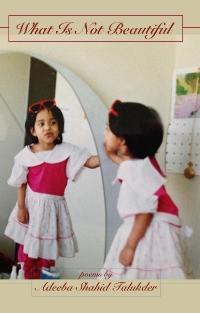
What Is Not Beautiful by Adeeba Talukder
Intertwining Urdu and English into a lyrical voice of passion and discontent, Abeeda Talukder challenges the concept of beauty in her poetry. She takes experiences from her own marriage as well as mental illness to highlight a necessary voice about womanhood and the struggles in South Asian culture. (Glass Poetry Press, June)

Sick: A Memoir by Porochista Khakpour
Through Porochista Khakpour’s endless search to find the cause of her sickness, she spent most of her days, “feeling dead inside.” Traveling the world—from New York to Germany—fighting addiction , and tackling new relationships, Khakpour shows one woman’s unwavering desire to live despite pain, mental illness, and the physical and psychological impacts from facing last-stage Lyme disease. (Harper Perennial, June 5)
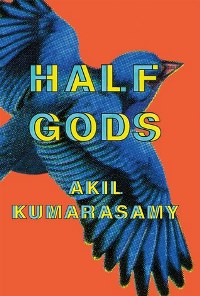
Half Gods: Stories by Akil Kumarasamy
In a collection of stories, two brothers named after characters from the Mahabharata, Arjun and Karan, embark on a journey to Lake George where their lives are changed. In her enchanting prose, Akil Kumarasamy blends the stories of a family to display the outstanding similarities of sorrow, hope, and weakness between parents, children, and friends. (FSG, June 5)
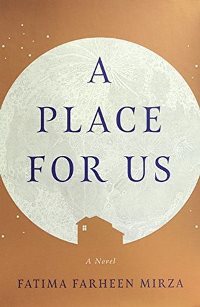
A Place for Us by Fatima Farheen Mirza
Preparing an Indian Muslim marriage based on love rather than tradition, Hadia manages to bring her family together, including her estranged brother, Amar. In doing so, Hadia and her family face past betrayals and learn how to reconcile despite their differences. Fatima Farheen Mizra’s story brilliantly displays a path to mold old traditions with the new to examine love and identity. (SJP for Hogarth, June 12)
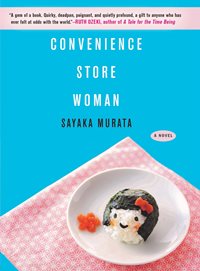
Convenience Store Woman by Sayaka Murata, trans. by Ginny Tapley Takemori
Japan’s konbini (convenience stores) are not going anywhere. And at the book’s outset, neither is Murata’s protagonist. Convenience Store Woman follows the story of Keiko Furukura, a 36-year old convenience store clerk (a position she’s held since college) as she encounters a familiarly disenchanted young man who comes to work at the store alongside her. An incisive look into Japanese work culture and the invisible pressures that bind us, Murata’s portrait of a character is sharp, pointed, and masterfully crafted. (Grove Atlantic, June 12)

The Lost Vintage by Ann Mah
Kate Elliot, daughter of a French expatriate, is studying to take the Master of Wine exam. This being her last chance, since previously failing the exam twice, Kate decides to visit her family’s vineyard estate in Burgundy to renew her knowledge on Burgundian vintages but finds herself learning about her family’s involvement in World War II escapees. Mah’s historical fiction moves smoothly between French history and the power of compassion. (William Morrow, June 19)
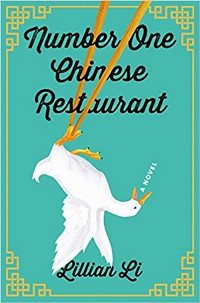
Number One Chinese Restaurant by Lillian Li
Pulling back the curtains of the Beijing Duck House, a Chinese restaurant in Rockville, Maryland, Lillian Li’s debut novel reveals a massive family drama with all the frictions of tradition and modernity, love and desire, mystery and open secrets. (Henry Holt, June 19)
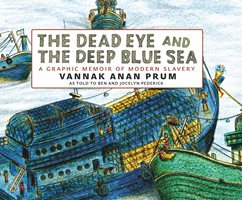
The Dead Eye and the Deep Blue Sea: A Graphic Memoir of Modern Slavery by Vannak Anan Prum, Jocelyn Pederick and Ben Pederick
A story about human trafficking, migration, and family, Prum’s graphic memoir recounts, in vivid detail and color, his own journey from a child being raised in a monastery to the time he was sold—not once, but twice—as a modern day slave. (Seven Stories Press, June 26)
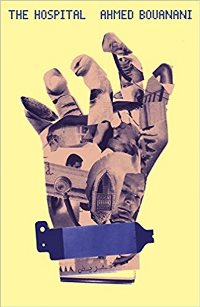
The Hospital by Ahmed Bouanani, trans. Laura Vergnaud
First published in French in 1990, Ahmed Bouanani’s The Hospital delves deep into the psyches of its narrator. What emerges is an unsettling yet riveting character study that blurs the lines between past and present, between mythical and factual. (New Directions, June 26)
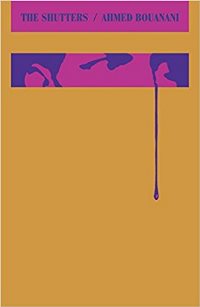
The Shutters by Ahmed Bouanani, trans. Emma Ramadan
Published in English for the first time, Ahmed Bouanani’s collection of poems is a glimpse at Morocco’s cultural history. Mixing prose and verse, Bouanani pieces together a portrait of Morocco that acts as a gateway into the contemporary and the quotidian. (New Directions, June 26 )
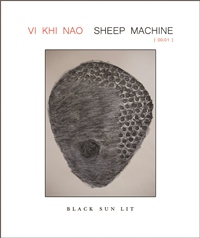
Sheep Machine by Vi Khi Nao
Leslie Thornton’s similarly-titled visual installation served as the basis for Nao’s new collection of prose. With sentences like “A sliver of wheat flashes intermittently on the chest region of monkey clouds,” Nao’s prose at once fits a grammatical structure yet resists any clean interpretation, interrogating the ways that vision informs our reality. (Black Sun Lit, June 27)


